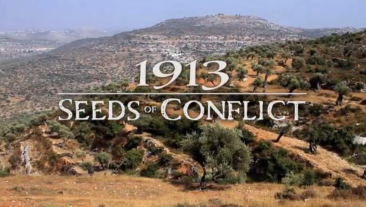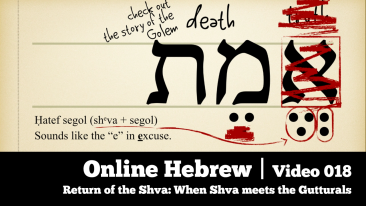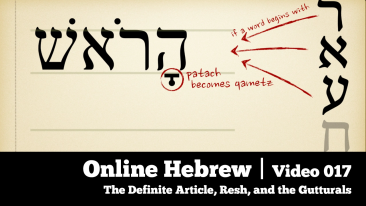Someone asked me about the potential threat of “terrorist infiltration” if we as a nation provide refuge for those fleeing Syria and northern Iraq. Here is my response: Continue reading
Author Archives: Jimmy Doyle
The White House’s Secret Deal with Iran
NOTE: This post was written as a form of satire, as test to 1) see how people (particularly conservatives) would respond when they became aware at the end of the article that the following events were part of the 1980’s Iran-Contra affair under President Reagan rather than concerning President Obama and the current U.S.-Iran discussions and 2) see if people in the social media world of Facebook or Twitter would actually read the article before making comments on those platforms. It was clear that many did not read the article or follow its source links, but only read the headline, and responded accordingly. Several reposted and shared the link thinking it was about the current administration.
Since so many did miss the Iran-Contra connection, I have decided to be clear about the nature of this post. I would not want it to become the source of mis-information or vitriol.
The following information provides some perspective for responding to the recent Iran deal. It also has bearing on our reactions and responses the potential Benghazi cover-up:
An Illegal Conspiracy to Mislead the American People
Through a series of incidents involving low level operatives, it is known that key and high-ranking members of the National Security Council, the CIA, and the White House approved illegal sales of weapons to Iran via a third-party country and attempted to keep it a secret from the American people. This was done:
Ryan Abernathy and Todd Littleton on Food Stamps, Welfare, Poverty, and the Church
My friend Todd Littleton posted a great interview (as well as some of his own thoughts) with Ryan Abernathy, Senior Director of Programs and Nutrition at the Regional Food Bank of Oklahoma, concerning government services such as food stamps (SNAP, Supplemental Nutrition Assistance Program), TANF (Temporary Assistance for Needy Families), other services, and the church’s role with those in poverty. Todd’s post also links to another two part interview with Ryan entitled “Facts About American Poverty” (part 1 and part 2) over at Marty Duren’s Kingdom in the Midst blog.
I highly encourage you to read all three of those posts and listen to the podcast. Here are some snippets of the latter:
Marc Brettler: “A Jewish Perspective on the New Testament”
The 2015 David S. Lobel Visiting Scholar Lecture at Stanford was given by Dr. Marc Brettler, co-editor of the Jewish Annotated New Testament (JANT) with Amy Jill Levine. In the lecture Dr. Brettler gives some background on the work of the JANT, and then gives examples of his understanding of the Jewish context of several passages in the New Testament. The lecture begins 5 minutes into the video, and the contextual examples begin about 21 minutes into the video.
It is a long lecture, but I highly recommend watching it if the first century context of the New Testament is of interest.
David Fitch: On Being On The Wrong Side of History
I don’t really know David Fitch‘s views or positions on most issues (though I can guess), but I enjoyed this article. I’ve thought for a while that “The wrong side of history” is a phrase that has very little meaning in terms of rational debates, especially about issues of justice (where too often the oppressed have not been those writing history). It has been an especially troublesome phrase when it is used to simplistically (and erroneously, as Fitch points out) argue that the church and followers of Jesus have consistently been “on the wrong side of history” in terms of social issues. Continue reading
“…[it’s] one of the most unhelpful questions to ask… “: Carl Meadaris on Violence and Islam
Carl Meadaris, a follower of Jesus who has spent 30+ years working in the Middle East and with Muslims, is interviewed on the question “Is Islam inherently violent?” by the hosts of the Nomad* podcast. In the interview he reframes the question and provides helpful answers. You can listen to it here on the nomad website.
1913: Seeds of Conflict — Pre-WW1 Palestine and the Roots of the Arab-Israeli Conflict
Last night PBS presented a well done and very basic introduction to some of the late 19th-early 20th century history of the issues at the heart of the Arab-Israeli conflict. The title is 1913: Seeds of Conflict. It contains great photos and (newly discovered) film from the early 20th century, and is full of dramatized snippets of Arab, Jewish, and Christian sources. Here’s the synopsis from PBS:
Explore an overlooked moment in pre-WWI Palestine when people’s identities overlap and Jewish, Muslim and Christian communities intermingle freely, yet few can contemplate the conflict that would engulf their region for the next century.
Biblical Hebrew Resources: Hebrew Bibles
Some of you have asked about resources for learning, studying, and reading Biblical Hebrew. I’m sorry that it has taken so long to respond. In the next series of posts, I will list some beginning texts that I think are both essential and helpful. Please note: these are the hard-copy versions of these works. Many of them you can also purchase using Bible study software like Accordance or Logos, and sometimes the larger works cost less in these digital formats than in hard copies. While I introduce them here, I will discuss biblical studies software more fully in later posts.
An Open Letter to My Fellow Christians Regarding Today’s SCOTUS Decision
To so many of my Christian brothers and sisters who disagree with today’s SCOTUS decision: Continue reading
Return of the Shᵉva: Shᵉva and the Gutturals
A short video on the compound shᵉva that occurs under the gutturals א, ע, ה, and ח. Video 18 in the Online Hebrew instructional series. For our previous video on Shᵉva, check out video 10.
Videos for Hebrew Online Classes
Here is a complete collection of the videos for our online series. Videos will be added as they are produced.
The Definite Article, Resh, and the Gutturals
Here is number seventeen in our video series for learning Biblical Hebrew. In this video we address the changes made to the definite article in Hebrew when prefixed to words beginning with gutturals and resh.





![“…[it’s] one of the most unhelpful questions to ask… “: Carl Meadaris on Violence and Islam “…[it’s] one of the most unhelpful questions to ask… “: Carl Meadaris on Violence and Islam](https://www.jkdoyle.com/wp-content/uploads/2015/07/Screenshot-2015-07-01-13.53.55-366x204.png)





